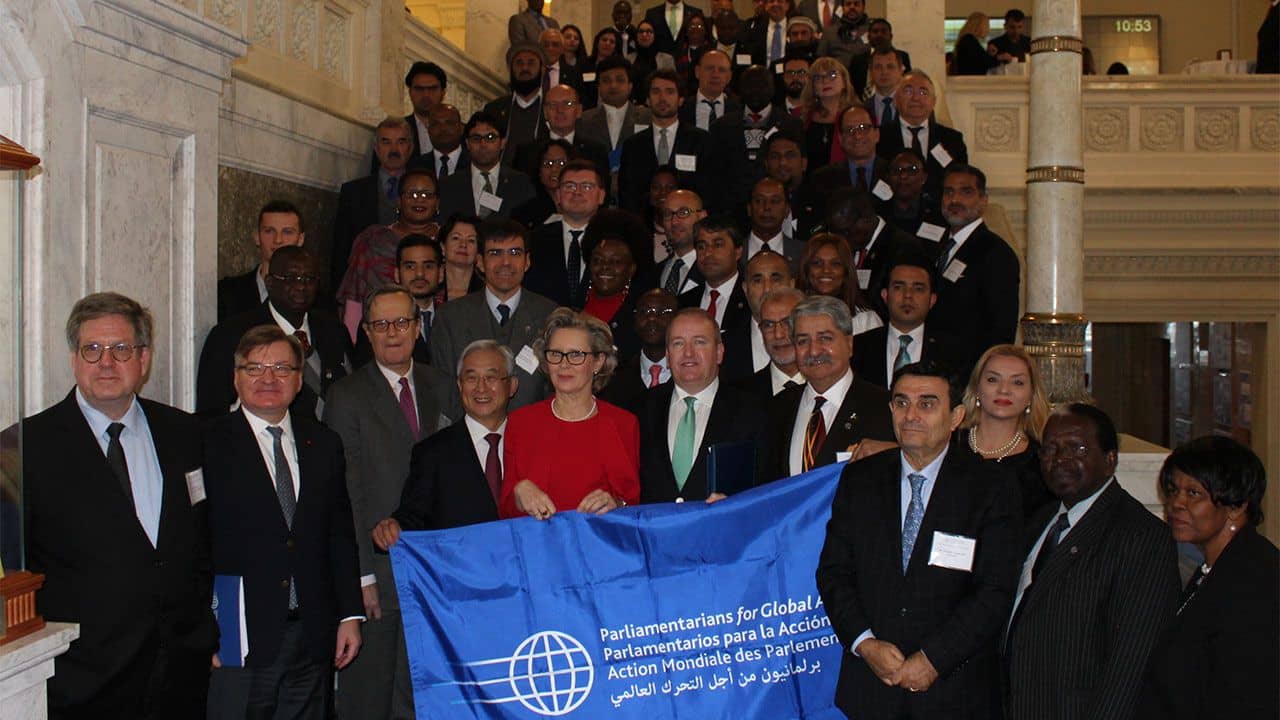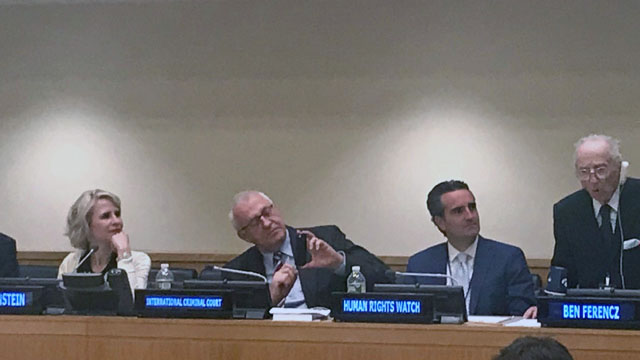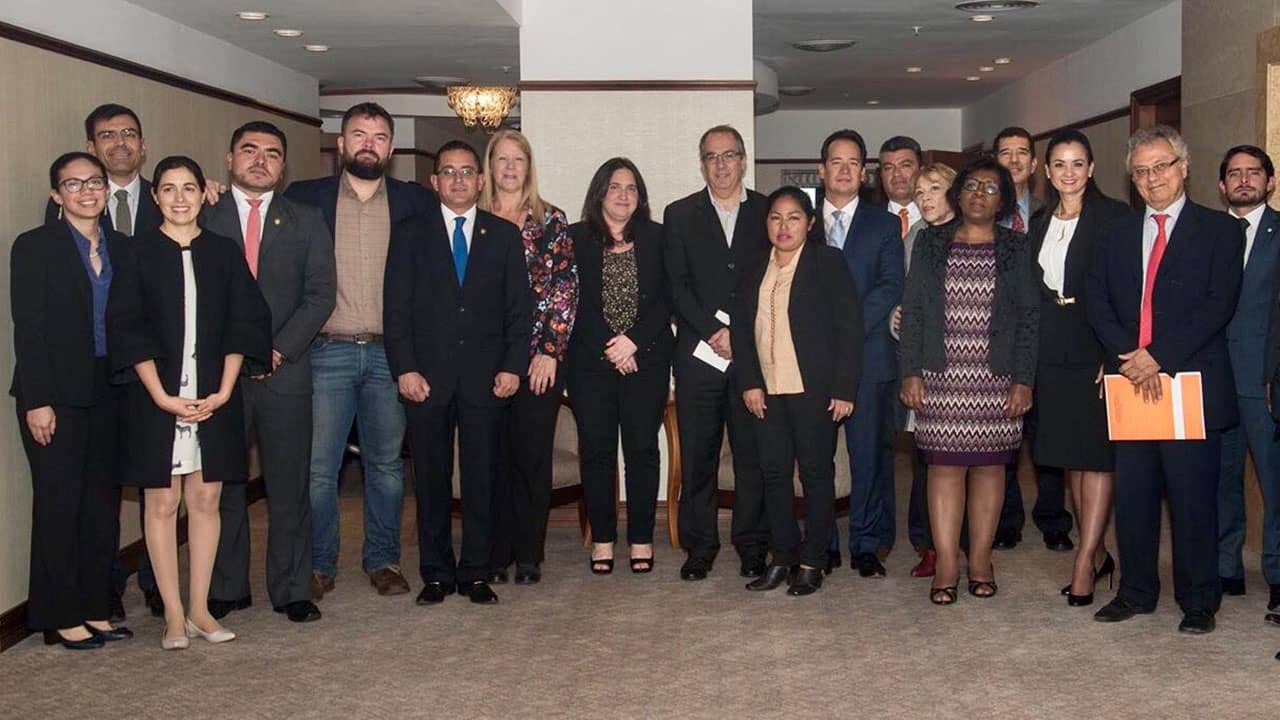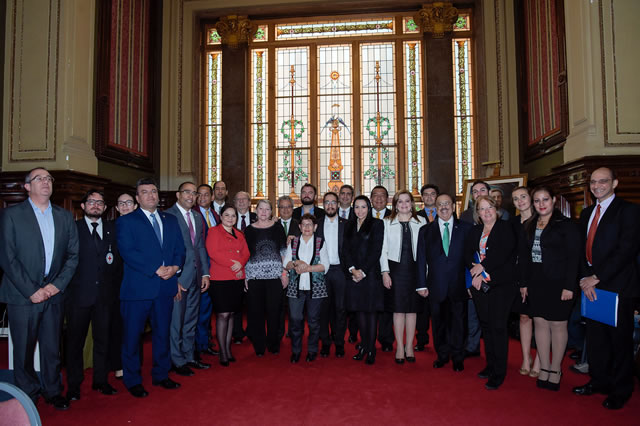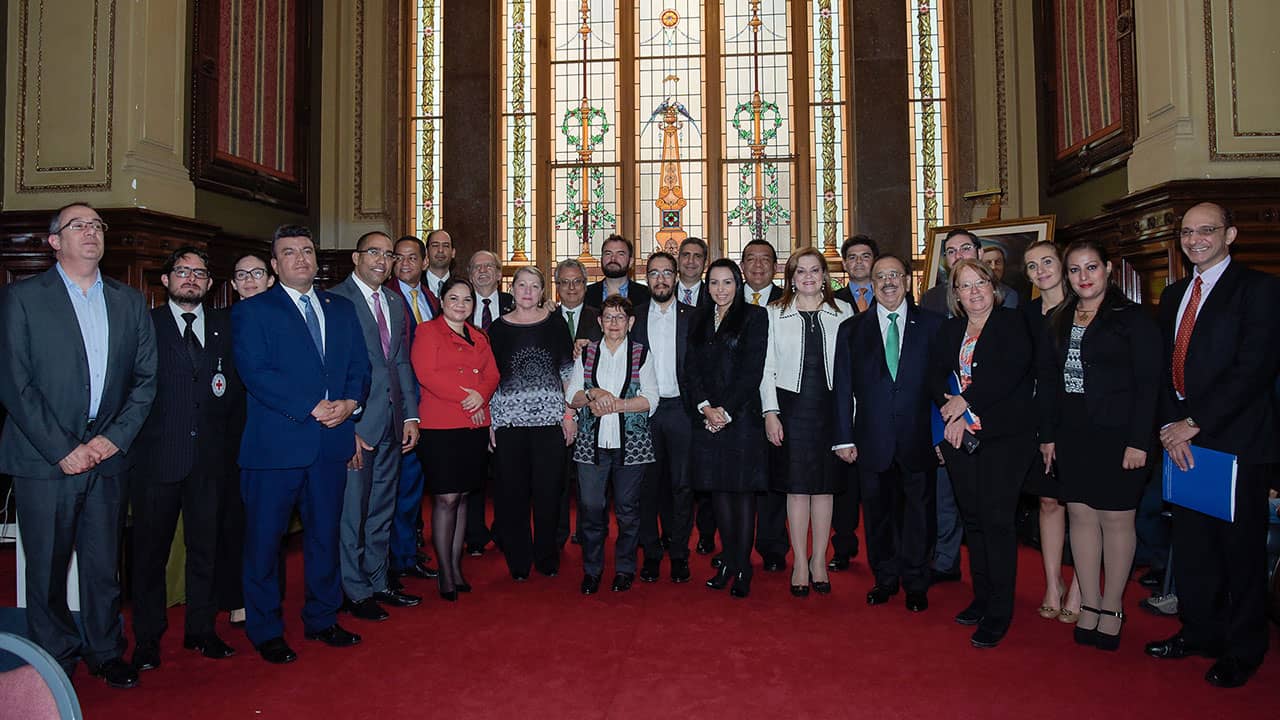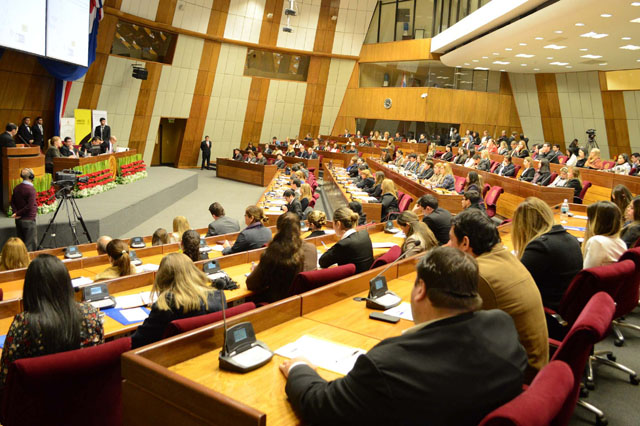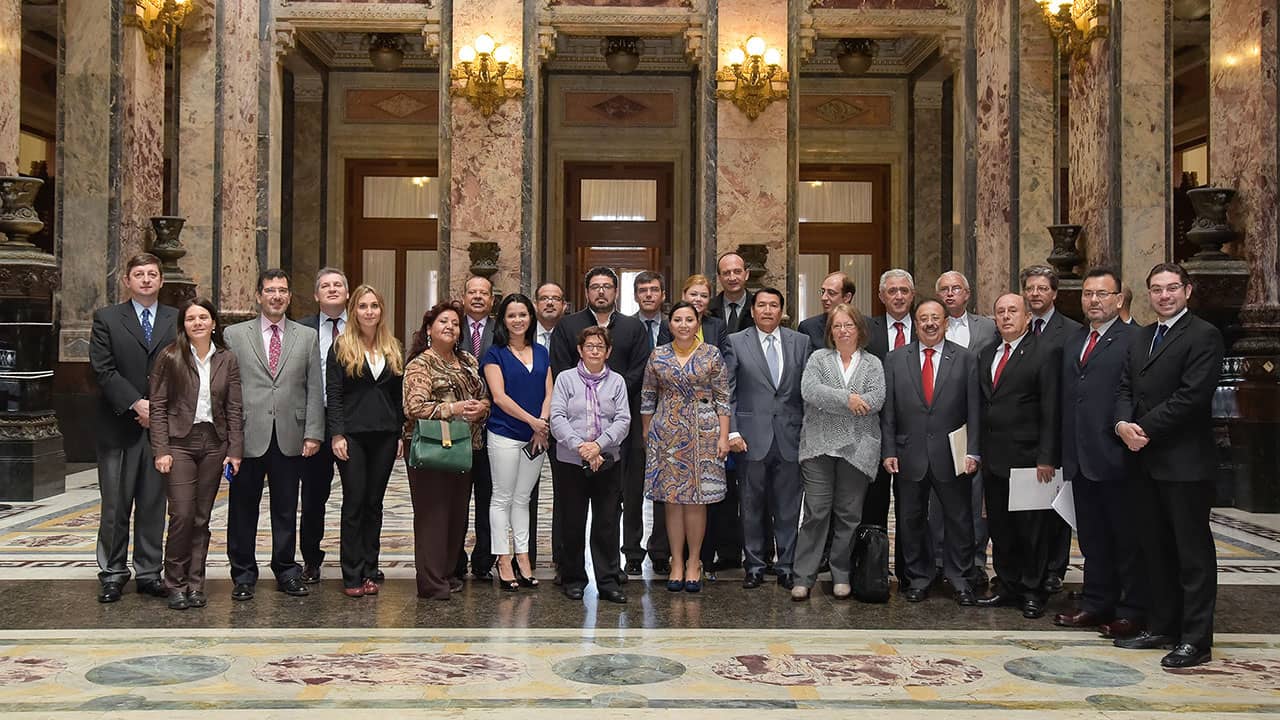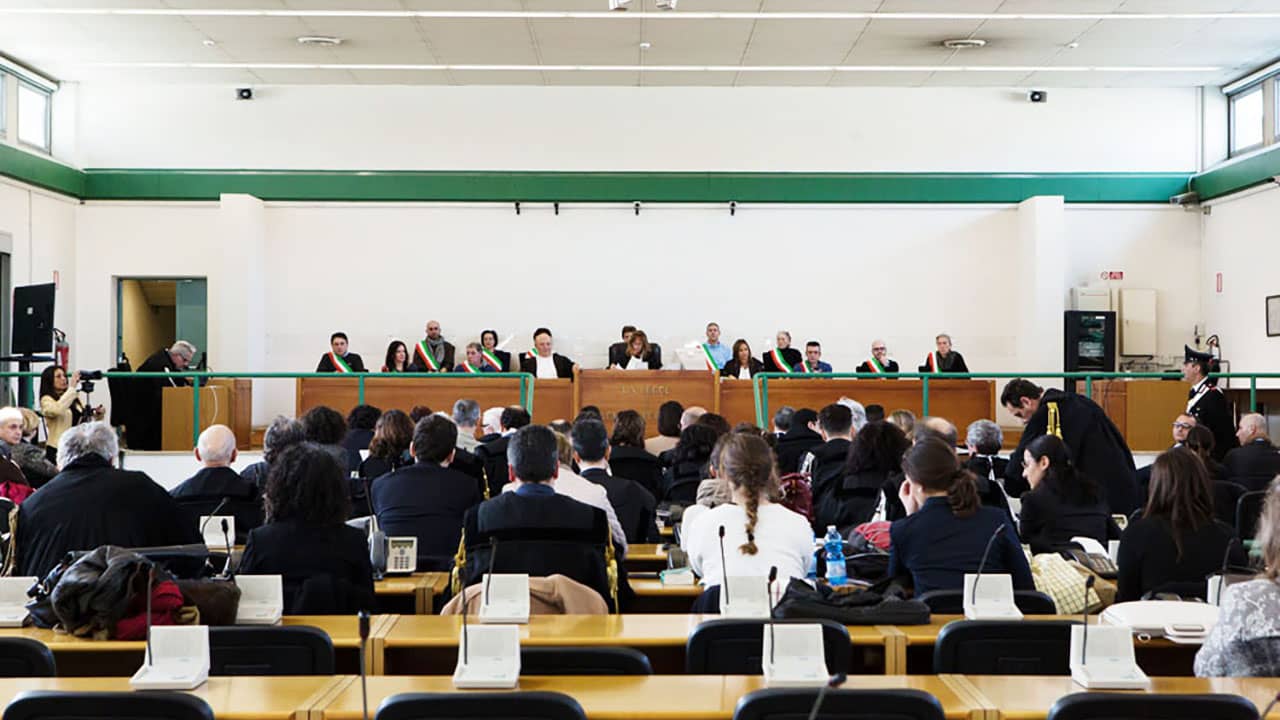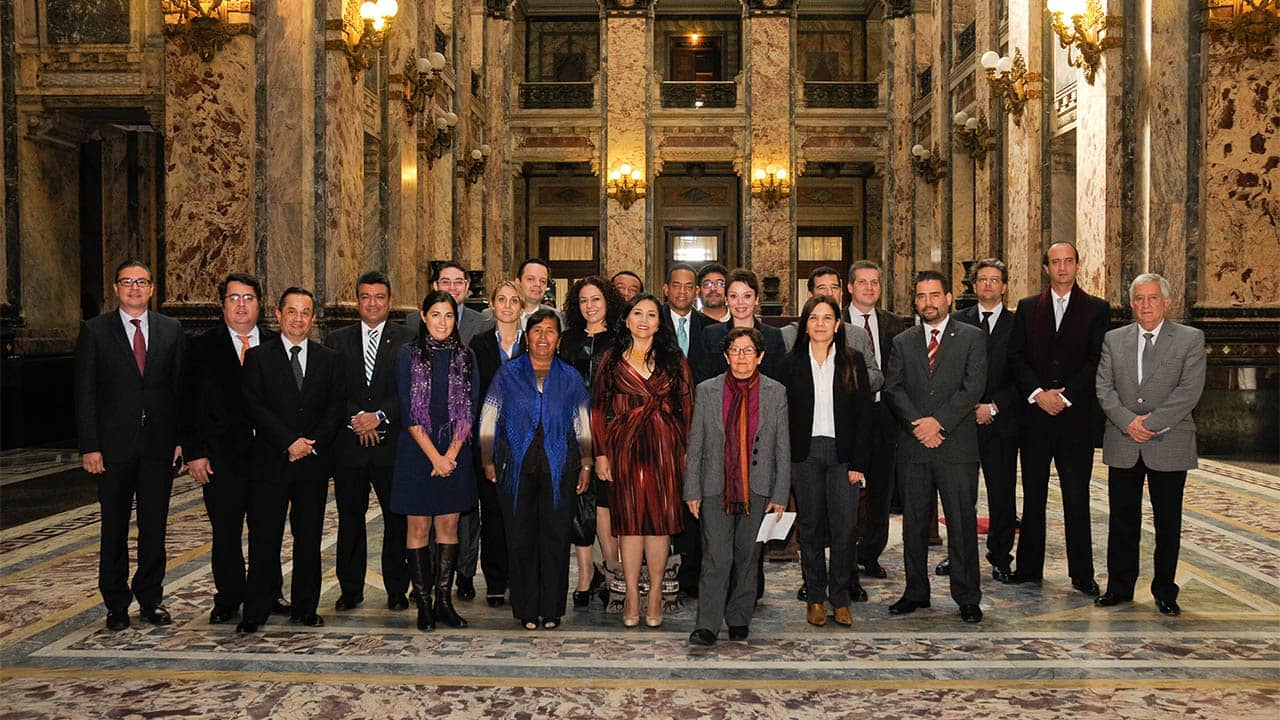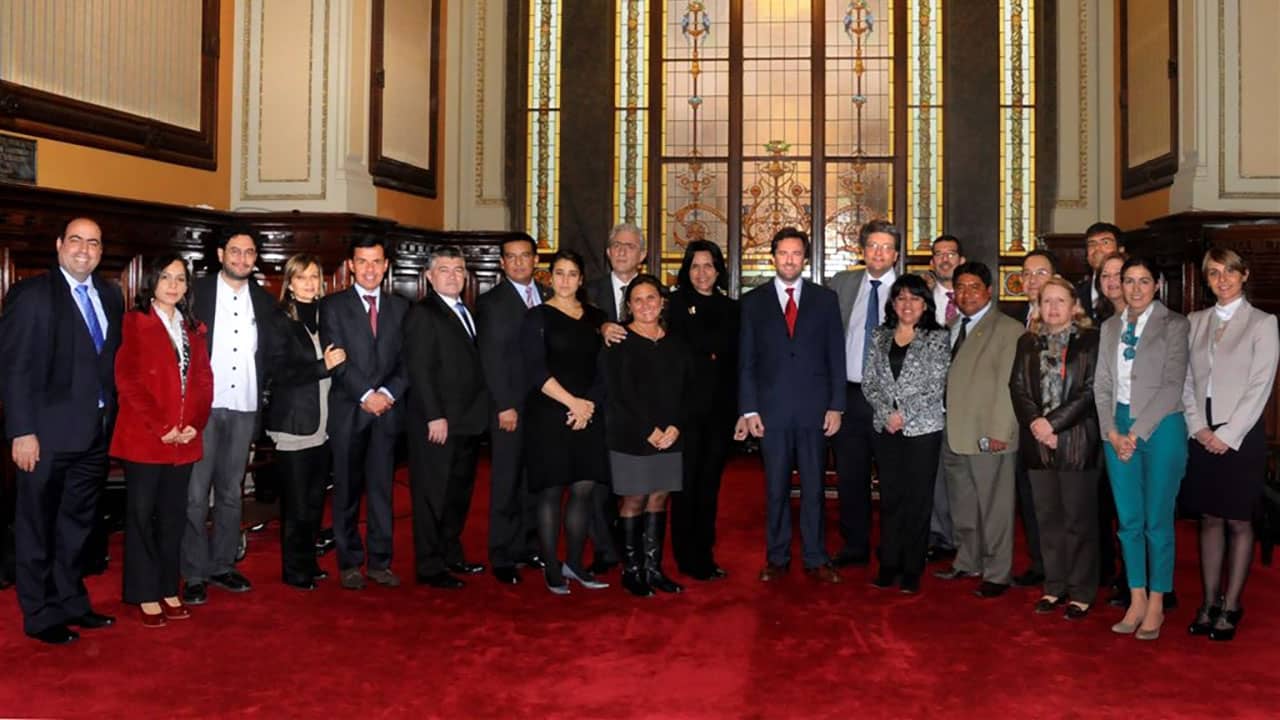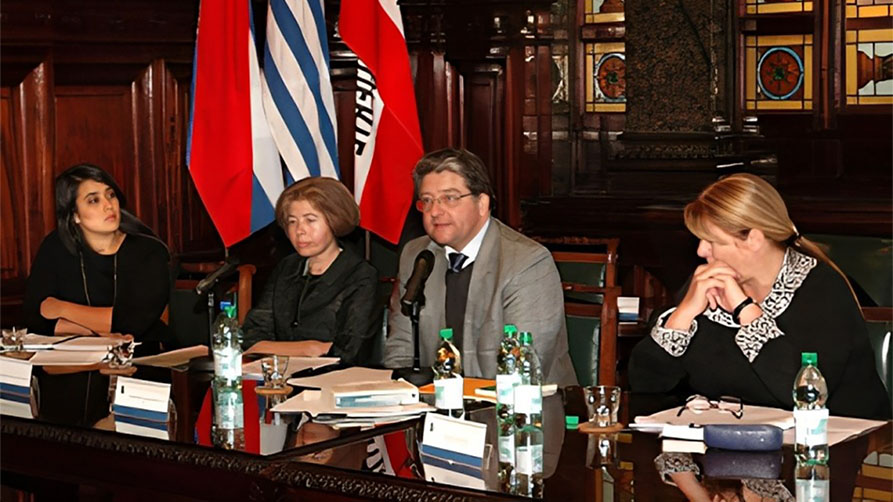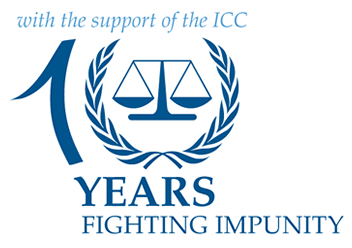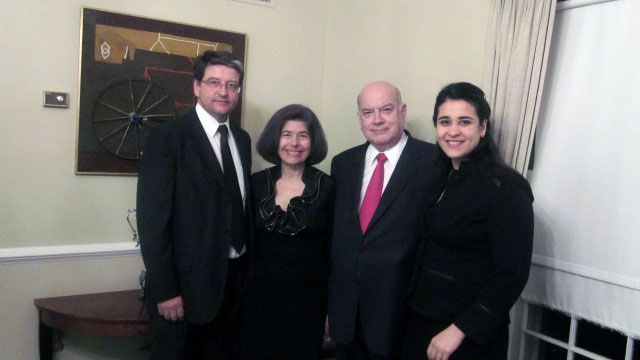Rome Statute
The Oriental Republic of Uruguay signed the Rome Statute on 19 December 2000 and deposited its instrument of ratification of the Rome Statue at the United Nations on 28 June 2002, becoming the 72nd State Party contributing to the entry into force of such international treaty on 1st July 2002.
Kampala Amendments
On 18 June 2013, the Senate of Uruguay approved the Bill of Ratification of the Kampala Amendments to the Rome Statute on the crime of aggression and on the use of certain weapons in armed conflict not of an international character which were adopted by the 2010 Review Conference.
Status of Domestic Implementation
In 2006 the Parliament of Uruguay unanimously approved Law 18.026, implementing the Rome Statute in local legislation and including complementarity and cooperation provisions. It entered into force on October 11, 2006
Uruguay became the first country in Latin America to fulfill its obligations regarding implementation under the Rome Statute.
Agreement on Privileges and Immunities of the Court
On September 6, 2006, the Senate and the Chamber of Representatives meeting in General Assembly approved the APIC that had already been signed by Uruguay on 30 June 2014. The instrument of ratification was deposited by the government on 3 November 2006.
Additional Agreements
Uruguay publicly rejected the Bilateral Immunity Agreement of no surrender proposed by the United States. As State Member to the MERCOSUR, Uruguay signed the Common Position adopted on June 20, 2005 in Asuncion (Paraguay).
Progress and PGA Action
On 27 and 28 August, 2014 a Parliamentary Seminar and a technical Workshop entitled "Sub-Regional Working Group on Challenges for the Effectiveness of the Rome Statute system in the Americas", was organized by PGA together with the Chamber of Representatives of Uruguay in Montevideo. The discussions brought together over 25 Parliamentarians from 12 different Latin American States, such as Argentina, Bolivia, Colombia, Costa Rica, Dominican Republic, Ecuador, El Salvador, Guatemala, Honduras, Paraguay, Peru and Uruguay, members of the Government led by Uruguayan Director General of the Ministry of Foreign Affairs, Amb. Gustavo Alvarez, other relevant stakeholders and representatives of civil society.
On 16 and 17 September 2013, the “Roundtable and Parliamentary Workshop about the International Criminal Court and the Rome Statute” (Mesa Redonda y Taller Parlamentario sobre la Corte Penal Internacional y el Estatuto de Roma), an event co-organized by PGA and the Chamber of Representatives of Uruguay with the collaboration of the CICC, ICRC and the GIPA, took place. Such event was organized in the framework of a Sub-Regional Working Group on Challenges for the Effectiveness of the Rome Statute system in the Americas, which was hosted by the Chamber of Representatives of Uruguay in Montevideo. MPs from Argentina, Colombia, Bolivia, Paraguay, Peru, Ecuador, Costa Rica, Mexico and Dominican Republic atended.
On 26 July 2012, PGA co-organized a symposium about the tenth anniversary of the Rome Statute in the Uruguayan parliament.
In May 2012, in the context of the International Criminal Court Review Conference, held in Kampala, PGA Member and Covenor for the International Law and Human Rights programme, Dip. Felipe Michellini stated that: “The Crime of Aggression is one of the four most serious crimes under international law as recognised since 1998 in article 5 of the Rome Statute. The adoption of the definition of the crime in Kampala constitutes a historic legal development since 1945. Uruguay joins in the efforts of PGA members in Argentina and Chile to be at the forefront in ensuring full support to the respect of the principles of equality and rule of law enshrined in the Rome Statute and in the UN Charter in Latin America.”
Diplomatic Commitments
On 11 June 2012, the Ministers of Foreign Affairs of the Union of South American Nations (UNASUR) Argentina, Bolivia, Brazil, Chile, Colombia, Ecuador, Guyana, Paraguay, Peru, Suriname, Uruguay, and Venezuela called upon all States Parties to ratify the amendments adopted in Kampala. View the UNASUR letter here.





